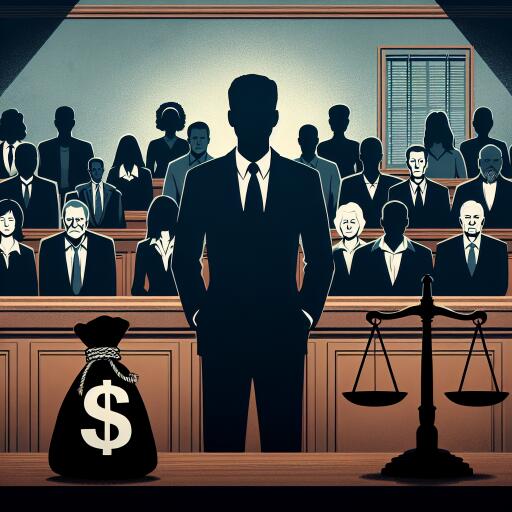Understanding the Jury Deliberations in Donald Trump’s Hush Money Case
The saga of Donald Trump’s hush money trial, marking the first criminal trial of a former U.S. president, has progressed to a crucial phase as the case is now in the hands of the jury. After 16 days filled with testimony from nearly two dozen witnesses and extensive closing arguments, the seven men and five women of the jury panel are deliberating on 34 felony counts of falsifying business records against Trump.
The Charges and Allegations
At the heart of the trial are accusations that Donald Trump masked payments to his former lawyer, Michael Cohen. These payments were reimbursements for $130,000 given to adult film actress Stormy Daniels to prevent her from disclosing an alleged sexual encounter with Trump during the 2016 presidential campaign. Trump has denied these claims, including the sexual encounter, and labeled the payments as legal expenses in his company’s records.
Jury Deliberations: An Inside Look
The jury’s task is to unanimously decide whether Trump engaged in or directed others to falsify his company’s records with fraudulent intent, aimed at concealing a violation of state or federal election laws. Various potential violations are presented, including breaches of the Federal Election Campaign Act, falsification of tax returns, and more.
The Deliberation Process
Jury deliberations, shrouded in privacy, take place away from the public eye. Should jurors need clarifications or wish to review specific testimonies, they may communicate through written notes, which are then addressed in the open courtroom. These notes can sometimes offer a glimpse into the jury’s thought process, though their exact deliberations remain confidential.
Trump’s Whereabouts and Possible Outcomes
While the jury deliberates, Trump is required to remain close by, having access to a courtroom within the building for breaks from the proceedings. The duration of the jury’s deliberation is unpredictable, and should they struggle to reach a unanimous decision, the judge may give further instructions to encourage a verdict. However, persistent disagreement could lead to a mistrial declaration.
Next Steps After a Verdict
Upon reaching a verdict, the jury’s decision will be communicated through a note, leading to the reconvening of the courtroom. Each count will be read aloud, with the jury’s verdicts announced publicly. The potential for a “not guilty” or “guilty” verdict on each count adds to the anticipation surrounding the jury’s conclusions.
Implications of a Deadlocked Jury
In the event of a deadlock, where the jury cannot agree on a verdict, the court may issue a “modified Allen charge,” essentially a directive encouraging jurors to continue deliberations in good faith. If agreement remains out of reach, this could result in a mistrial, leaving prosecutors to decide whether to retry the case.
Conclusion
The jury’s deliberations in Donald Trump’s hush money trial present a pivotal moment not only in this high-profile case but also in American legal and political history. As the world watches closely, the outcomes of these deliberations could have far-reaching implications for Trump and the legal precedent concerning the actions of former presidents.
